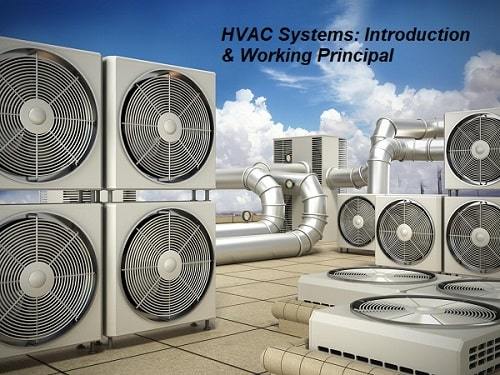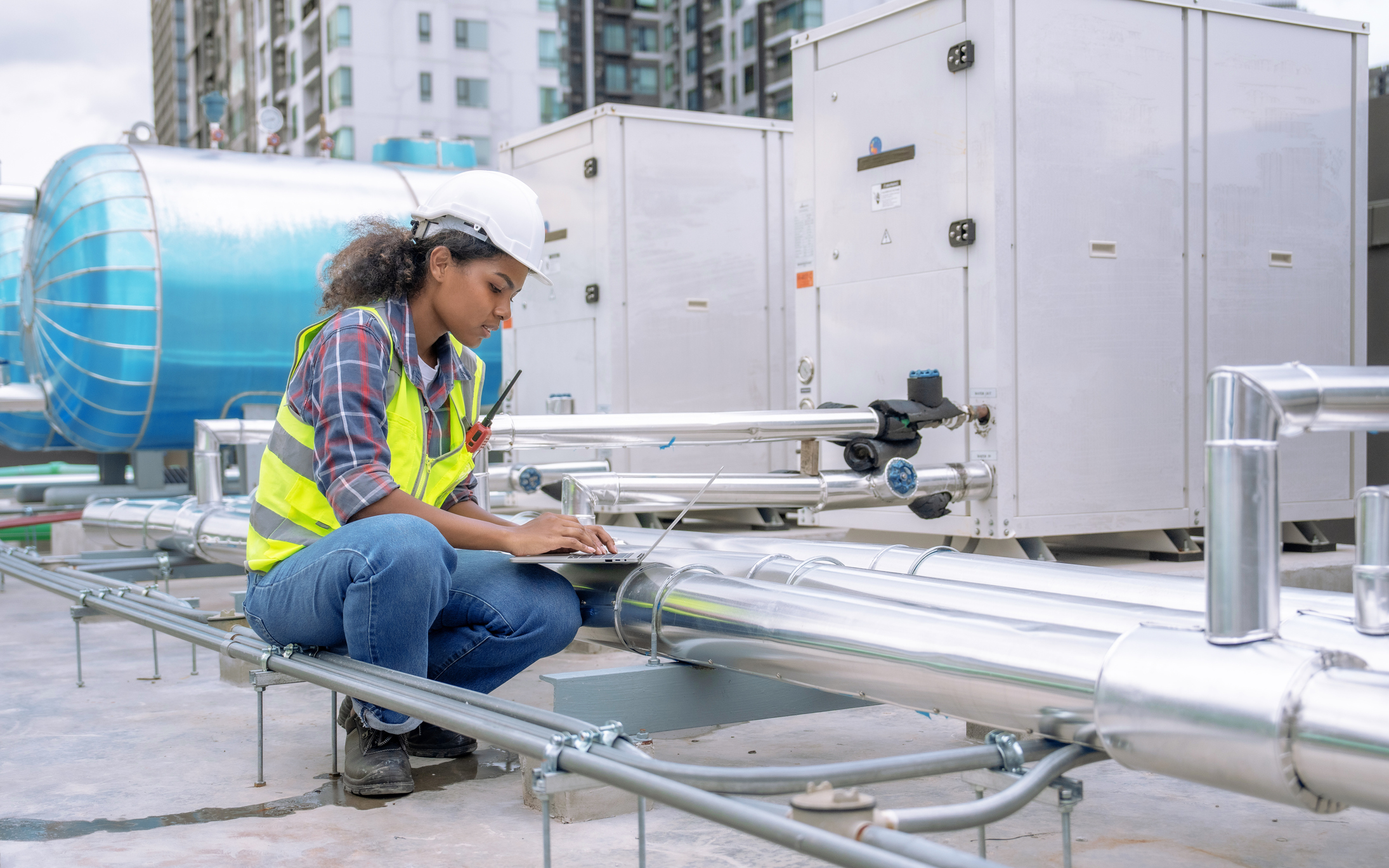A Thorough Take A Look At HVAC Providers and Their Effect On Power Efficiency and Expense Cost Savings
The role of a/c solutions in boosting energy effectiveness and accomplishing cost financial savings is more critical than ever, as property owners and businesses seek lasting options in a significantly eco-conscious world. With technological innovations like wise thermostats and high-efficiency parts, the possibility for optimizing system efficiency is vast. Yet, truth impact of these advancements depends mostly on normal upkeep and positive concern monitoring. As we check out the detailed relationship between HVAC systems and operational prices, including the change towards eco friendly alternatives, the inquiry arises: exactly how can these methods be successfully applied to maximize both financial and environmental benefits?

Relevance of Cooling And Heating Systems
a/c systems are a vital component of modern buildings, playing an important function in keeping healthy and comfy interior environments. These systems, incorporating heating, ventilation, and air conditioning, are crucial for managing temperature, humidity, and air quality, thus making sure the well-being of occupants. Reliable heating and cooling systems contribute considerably to producing an optimum indoor environment, which is important for both domestic and industrial spaces.
In commercial buildings, HVAC systems are important to giving a secure and efficient setting. By controlling interior environment problems, these systems aid avoid the development of mold and mildew and the spread of airborne contaminants, therefore safeguarding the health and wellness of customers and workers. In addition, in domestic settings, heating and cooling systems enhance living problems by using constant thermal comfort and enhancing interior air quality, which is important for general health.
Furthermore, the style and maintenance of HVAC systems have a direct influence on energy intake and operational costs. Correctly made and kept systems can dramatically reduce energy use, resulting in reduced utility expenses and a smaller sized carbon footprint. The effectiveness of these systems hence plays an important function in promoting sustainability and energy conservation within structures, highlighting their significance in the contemporary architectural landscape.
Advances in Heating And Cooling Technology
Technology in cooling and heating technology is revolutionizing the means structures handle interior climates, ushering in a brand-new era of effectiveness and control. Recent developments have focused on enhancing energy usage while boosting user convenience. One noteworthy growth is the combination of smart thermostats, which make use of artificial intelligence to learn tenancy patterns and adjust temperature levels as necessary, reducing unnecessary power use.
Variable Cooling Agent Flow (VRF) systems stand for an additional significant jump forward. These systems permit specific temperature level control in different areas of a building, enhancing convenience and lowering power waste. VRF technology is specifically valuable for big commercial rooms, offering versatility and scalability.
Additionally, the arrival of Web of Things (IoT) devices has transformed HVAC systems right into interconnected networks efficient in real-time data collection and analysis. This connectivity allows predictive upkeep, ensuring systems operate at peak performance and decreasing unanticipated downtime.
In addition, developments in materials and design, such as the usage of high-efficiency coils and compressors, have actually boosted overall system performance - Heating Contractor. The fostering of eco-friendly refrigerants additionally emphasizes the sector's commitment to sustainability
These technical technologies are crucial in lowering functional expenses and ecological effect, establishing brand-new criteria for building environment management.
A/c Maintenance and Efficiency
Ensuring ideal efficiency of a/c systems extends past technical developments; it additionally hinges on efficient upkeep practices. Routine maintenance is essential for sustaining efficiency, minimizing power intake, and prolonging the life expectancy of heating and cooling systems. The primary goal is to make sure that all components function at their peak capacity, therefore decreasing energy waste and keeping constant indoor comfort levels.
Routine maintenance tasks, such as cleaning or replacing air filters, checking cooling agent degrees, and inspecting ductwork for leakages, are crucial for protecting against unnecessary pressure on the system. Unclean or stopped up filters can block air flow, triggering the system to Go Here work more difficult and take in even more energy. Also, insufficient refrigerant degrees can decrease cooling efficiency, bring about higher operational costs.
Furthermore, routine examinations by certified specialists can determine prospective issues before they rise into expensive repair services or system failures. These assessments commonly consist of checking electric connections, adjusting thermostats, and making certain the total stability of the cooling and heating system. By attending to small issues early, property owners and companies can prevent unanticipated break downs and enhance power efficiency.
Cost-Effective A/c Solutions
For those wanting to obtain the most out of their air flow, heating, and air conditioning systems without breaking the bank, exploring cost-efficient heating and cooling services can make a substantial distinction. One Our site instant step is to purchase programmable thermostats, which allow users to set specific temperatures for different times of the day, maximizing power use and reducing unnecessary intake. By automating temperature changes, homeowners can accomplish significant savings on energy costs.
Normal upkeep is one more critical element of cost-efficient cooling and heating management. Guaranteeing that filters are cleaned or changed frequently, ductwork is sealed, and systems are serviced by specialists can prevent costly repairs and enhance system durability. Precautionary upkeep not just preserves system efficiency but also assists in preventing unforeseen break downs that can cause costly emergency repair work.
Furthermore, retrofitting existing systems with energy-efficient elements, such as variable speed electric motors or high-efficiency compressors, can be a prudent investment. These upgrades boost operational efficiency, reduce energy usage, and can frequently be carried out at a portion of the expense of a complete system substitute.
Environmental Impact Decrease
Minimizing the environmental impact of a/c systems is essential in today's search of lasting living. HVAC systems are substantial contributors to energy intake, representing nearly 40% of energy use in industrial structures. This energy need typically relies on fossil gas, leading to greenhouse gas exhausts and environmental destruction. Transitioning to much more reliable systems, such as those utilizing eco-friendly energy sources, can substantially alleviate these impacts.
Technical developments in a/c style and procedure, consisting of the combination of wise thermostats and energy-efficient warm pumps, are essential in lowering carbon impacts. These advancements permit enhanced power use, reducing wastage and enhancing overall system performance. In addition, adopting routine upkeep techniques makes certain cooling and heating systems run at peak performance, additional stopping unnecessary energy consumption.
Furthermore, the use of eco-friendly cooling agents is critical, as traditional refrigerants, like CFCs and HCFCs, have actually been eliminated as a result of their ozone-depleting properties. Modern options, such as hydrofluoroolefins (HFOs), deal decreased ecological risks, aligning with worldwide ecological protocols. By accepting these sustainable techniques, cooling and heating services can play a transformative duty in minimizing environmental impacts, advertising power performance, and promoting a more lasting future.
Conclusion

In addition, the design and upkeep of A/c systems our website have a direct influence on power consumption and operational expenses. Regular upkeep is essential for maintaining performance, lowering energy usage, and expanding the life span of HVAC systems. A/c systems are substantial factors to energy consumption, accounting for almost 40% of power use in industrial buildings. Additionally, embracing regular upkeep methods makes certain Cooling and heating systems operate at peak efficiency, further cutting unneeded power usage.
The transition to ecologically pleasant HVAC systems further promotes and minimizes operational expenses sustainability. (Heating Contractor)